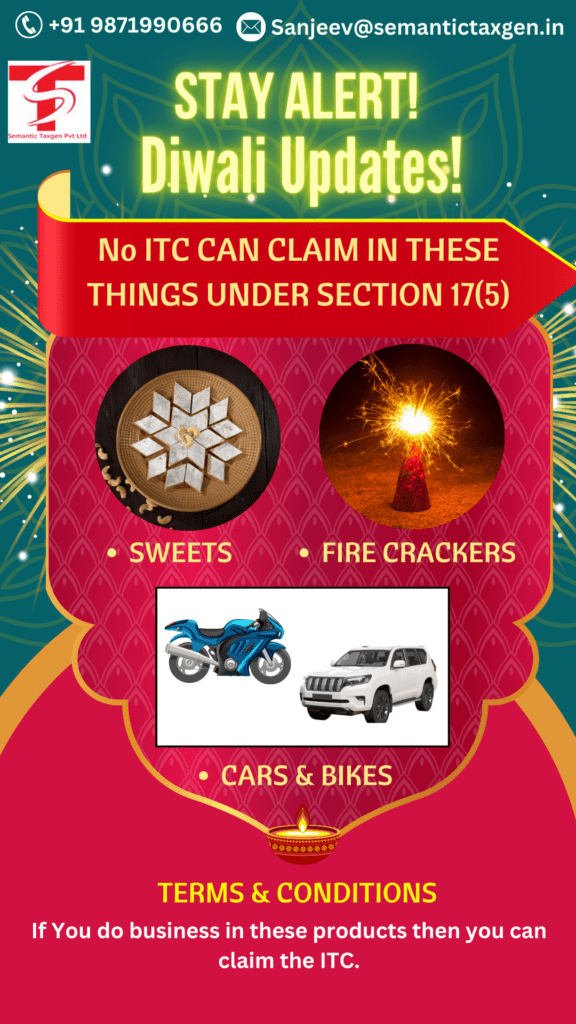
As Diwali approaches, businesses often celebrate by distributing gifts like sweets, cookies, clothes, firecrackers, and sometimes even bigger items like cars or bikes. However, for organizations registered under GST, the question of claiming Input Tax Credit (ITC) on these gifts often arises. Under GST law, especially Section 17(5), certain expenses are eligible for ITC while others are restricted. This article covers the applicability of ITC on Diwali gifts, helping businesses ensure compliance while managing their tax liabilities efficiently.
Input Tax Credit (ITC) is a mechanism that allows businesses to claim credit for the GST they pay on purchases of goods or services used in their operations. It helps reduce tax liability by offsetting the GST collected from customers with the GST paid on expenses. However, not all expenses qualify for ITC, especially when it comes to gifts and items for personal consumption.
Under Section 17(5) of the CGST Act, certain expenses are specifically blocked from ITC claims. These generally include personal expenses, gifts to employees that exceed a specific threshold, and certain goods and services, like those used for personal use, rather than furtherance of business. Understanding how these restrictions apply to Diwali gifting is essential for businesses.
Here’s a breakdown of common Diwali gifts and how ITC applies to each under the current GST framework.
Though Section 17(5) blocks ITC for personal use items, there are some scenarios where ITC can be claimed:
When claiming ITC, especially in cases where eligibility may be questioned, proper documentation is key. Businesses should maintain:
Claiming ITC incorrectly can lead to penalties, interest, and scrutiny from tax authorities. Common mistakes include:
The spirit of Diwali is to share joy and appreciation, and while businesses may wish to extend gifts to employees or clients, it’s essential to understand the restrictions under Section 17(5) of the GST Act. Claiming ITC on Diwali gifts requires careful attention to eligibility rules, proper documentation, and alignment with business purposes. This approach ensures compliance with GST laws while allowing businesses to celebrate Diwali without financial surprises during tax season.
DISCLAIMER: The information provided in this article is intended for general informational purposes only and is based on the latest guidelines and regulations. While we strive to ensure the accuracy and completeness of the information, it may not reflect the most current legal or regulatory changes. Taxpayers are advised to consult with a qualified tax professional or you may contact to our tax advisor team through call +91-9871990777 or info@semantictaxgen.in
© 2013-25 Semantic Taxgen Pvt Ltd - All Rights Reserved